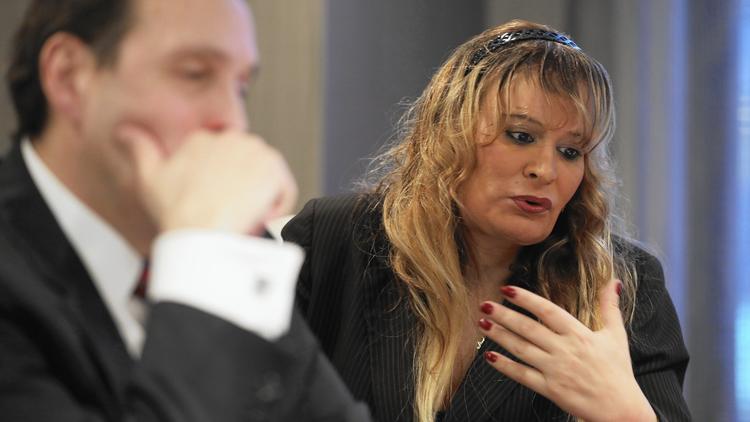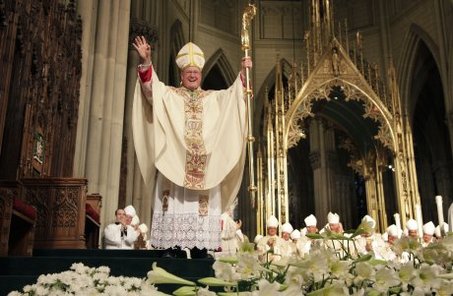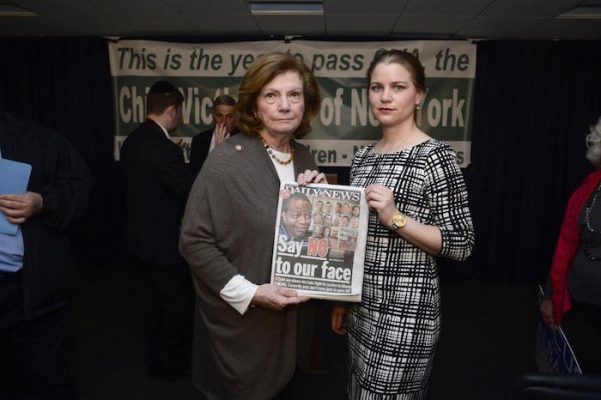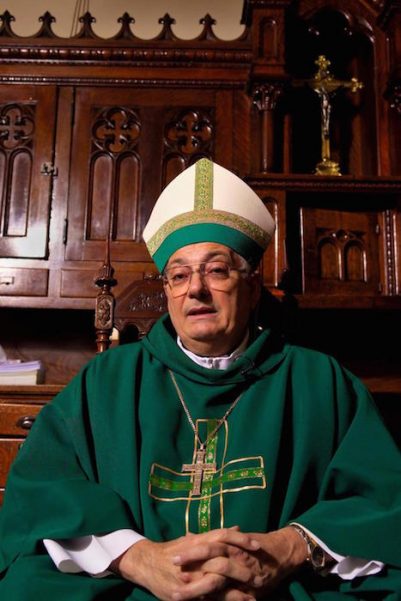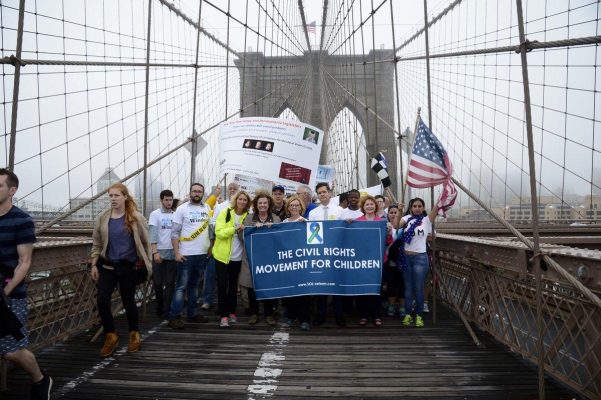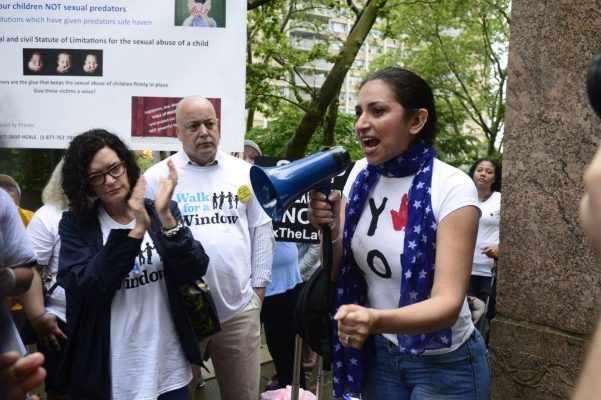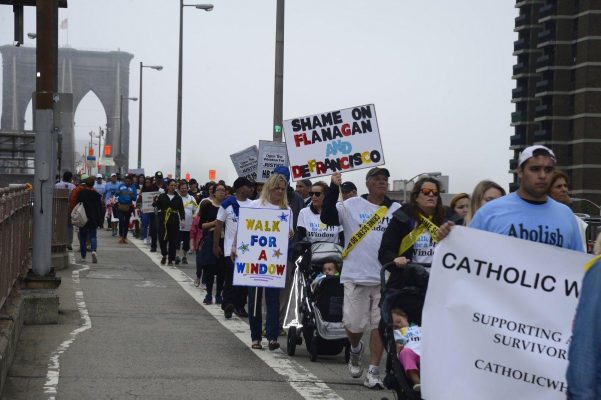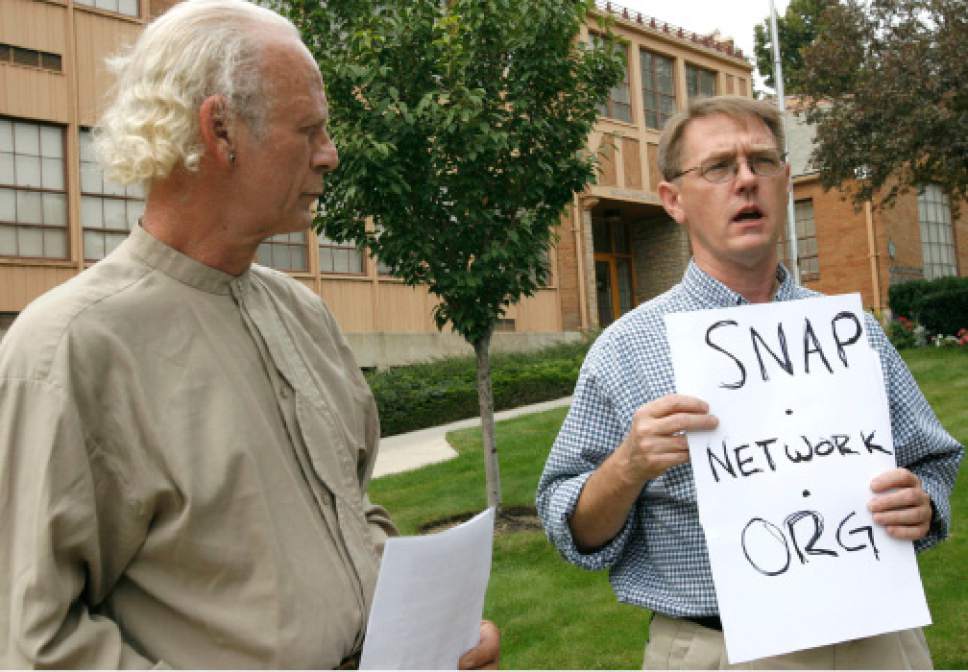
By DAVID GIBSON
A fixture in the organization working for children sexually abused by Catholic priests has resigned his post, an announcement that coincides with a lawsuit from a former employee alleging the group colluded with lawyers to refer clients and profit from settlements.
David Clohessy, longtime executive director of SNAP, or the Survivors Network of those Abused by Priests, said Tuesday that he left in December and his departure had nothing to do with the lawsuit, which was filed in Illinois on Jan. 17.
“Not at all,” Clohessy said by phone from his home in St. Louis, where SNAP has its main office. “My last day was five weeks ago, before this lawsuit ever happened.”
The lawsuit by Gretchen Rachel Hammond names Clohessy and other SNAP leaders as defendants and alleges that “SNAP does not focus on protecting or helping survivors — it exploits them.”
The group, which more than any other is responsible for revealing the scandals that have continued to rock Catholicism in the U.S. and around the world, “routinely accepts financial kickbacks from attorneys in the form of ‘donations,’ ” Hammond alleges.
“In exchange for the kickbacks, SNAP refers survivors as potential clients to attorneys, who then file lawsuits on behalf of the survivors against the Catholic Church. These cases often settle, to the financial benefit of the attorneys and, at times, to the financial benefit of SNAP, which has received direct payments from survivors’ settlements.”
Hammond, who worked on fundraising for SNAP from 2011 until 2013, said she feared reprisals from SNAP leaders over her objections to the lawyers’ payments and suffered serious health problems as a result. She said she was fired in 2013, allegedly because she confronted her bosses over their practices with victims’ attorneys and that the dismissal has hurt her career.
The lawsuit was first reported by National Catholic Reporter.
It long has been assumed that SNAP received substantial donations from some of the high-profile attorneys who specialize in these cases and who have won multimillion-dollar settlements from the Catholic Church in the U.S. and its insurance companies.
But Hammond’s filing shows how critical such donations are to SNAP’s survival: It asserts, for example, that 81 percent of the $437,407 in donations SNAP received in 2007 came from victims’ lawyers, and 65 percent of the $753,596 it raised in 2008 came from attorneys.
More problematic is Hammond’s allegation that SNAP worked hand in glove with victims’ attorneys and received “direct payments from survivors’ settlements.”
“The allegation is explosive because it’s unethical,” Jeff Anderson, a prominent Minnesota attorney who has represented victims of clergy sex abuse, told the Chicago Tribune.
“I’ve never done it nor would I ever do it,” said Anderson, who added that he regularly donates to SNAP but not in exchange for referrals.
In a statement, SNAP President Barbara Blaine, who founded the group along with Clohessy, said the allegations “are not true.”
“This will be proven in court,” Blaine said. “SNAP leaders are now, and always have been, devoted to following the SNAP mission: to help victims heal and to prevent further sexual abuse.”
Clohessy would not comment to Religion News Service on the lawsuit, but he told the St. Louis Post-Dispatch the charges were “utterly preposterous.” And he told RNS that SNAP “didn’t have any clue at all” that it was coming.
“We’ve heard nothing from her for four years since she quit. So that caught everybody by surprise.
“We have always been under attack by somebody at some point, legally and otherwise,” Clohessy added. “So it’s never been a factor in any decision making, at least not for me certainly.”
Complete Article HERE!

